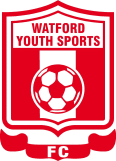It has become increasingly more apparent that Parents are driving decisions about the direction of Youth Sport. The impact of this shift is that the needs and interests of the Parents often supersede the needs and interests of the Players. Social power, ego, future financial gain, and the child's perceived athletic prowess and possibilities are just some of the reasons why some Parents have turned the fun and wonderment of children's play into a competitive cauldron. Despite the arguments, protests and pleas of those educated in the field of child development, the "parent knows best" mentality is imposing adult models on youth sport, with alarming consequences. It is strongly suggested that communities examine their reasons for organizing youth soccer and question the degree to which their program is driven by Parents interests at the expense of the children.
As sport becomes more organized, coaches feel more pressure to win. Without a firm appreciation for the long - term nature of player development, it follows that the instructions offered to Players are driven by the pressure to reduce the risk of losing goals. Dribbling is discouraged in favour of passing and players are told to avoid dwelling on the ball. Defenders are strategically positioned in front of the goalkeeper to ensure at least two bodies are in place when an attacker bursts out of the ubiquitous mob. Direct play is safer and therefore preferred. Free movement of players in support of team mates is restricted by many and expressly forbidden by others. In short, the technical, tactical and emotional needs of the individuals are often supplanted by the emotional needs of the coach, whose self -worth and perceived value are generally equated with winning percentage. This scenario repeats itself at the grassroots level and at the more advanced level. As soccer has become more organized, soccer players have become less "free" to enjoy the game in a manner that satisfies their principle of fun through play, and then they quit, in droves.
Our ability to maximise precious player resources and improve the overall quality of the youth soccer experience is dependent on informed and committed adults having the courage to give youth soccer back to children.
"So Please ", Mum and Dad
- Give me the time and opportunity to make my own decisions both on and off the field — “I need to learn the consequences of getting it right and wrong.”
- Try not to tell me off or shout at me from the sideline when I do get things wrong. Give me the chance to relax and play — “I need the mistakes to help me learn.”
- Try not to keep offering me advice going to games or coming home again. Let me unwind and reflect — “It helps me learn.”
- Listen to me if I come to you with a problem — “Sometimes I just need someone to talk to you - it helps me learn.”
- Remember I am a young person not a small adult — “Sometimes I don’t see things like you do or understand what you are saying.”
- Come and enjoy the game — “I’ll always try my best.”
- Please love me for being me — “Not just the things I can do.”
All children need to learn that life is an on - going journey with no pre - determined destination and that the only place that success comes before work is in the dictionary. It is helpful, with coach and parent support, for young players to set "small bite" goals for themselves with a development focus on trying to improve performance gradually and in small increments. If, at times, progress is swift - accept it, reassess the goals and move on to the next challenge.
Many young players give up hope when they think they have failed. Failure is often linked to a final result or to unrealistic coach or parent expectation. Player's, coaches and parents should understand that performance moves in upwards and downwards cycles. During difficult periods, players need support from parents and coaches. Players also need patience and resolve (when the going gets tough the tough get going - Knut Rockne), and should not expect instant success or unjustified praise.
Young players need to learn how to organise themselves - easy tasks like packing their kit bag and making sure equipment is clean and in working order before training and matches. At training they need to be included in the decision making process - sometimes coaches should let the players decide what size of area they should be working in for a particular activity or what the make up of teams in practise should be to achieve a particular outcome. All this provides young players with a framework in which they are given respect, trust and responsibility.
With respect, trust and responsibility to the fore young players may begin to understand that the game owes them nothing but a wonderful chance to go out and express themselves in a challenging and creative way - then they may have a better chance of "developing" and evolving as players and people.
<< Previous Next >>
<< Go back to list
|

